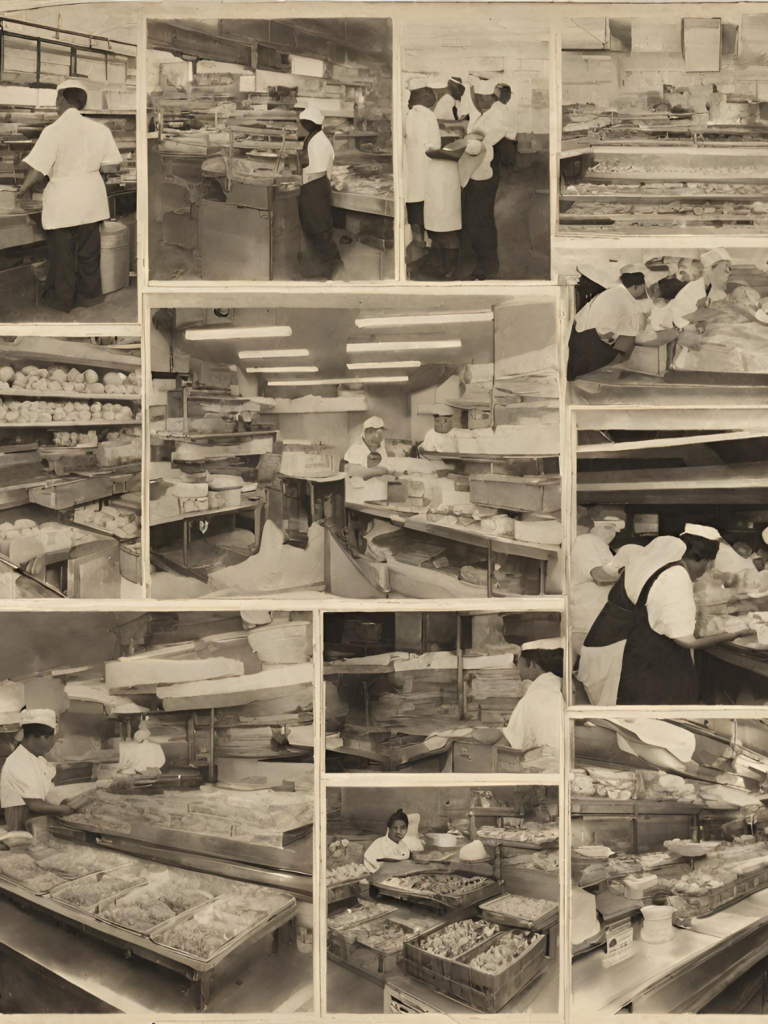Food Service Trade Organization: An Introduction
Numerous groups have important parts in shaping the food business, which is always changing and growing. Most importantly, food service trade groups are strong foundations that offer companies in the field important support, lobbying, and tools. Understanding what these groups do and why they exist is important for everyone in the food service business, from restaurant owners to lawmakers and providers.
Food Service Trade Organization: A Brief History
Associations for the food service industry have been around since the early days of modern business. While economies and communities were changing because of industrialization, it became clear that there needed to be organized groups to look out for the interests of certain businesses. Initial trade groups sprung up in the food industry to deal with similar problems like following rules, getting into new markets, and labour issues.
These businesses changed over time along with the food industry, responding to shifts in technology, customer tastes, and global markets. Nowadays, they include many different groups and clubs, such as national ones, regional ones, and specialized ones that focus on specific parts of the food service industry.
Mission and Purpose
Every company in the food service industry has a clear goal and purpose. These groups are there to look out for the best interests of their members and the broader business. To make policies, rules, and market conditions more favourable for business growth and survival, they use lobbying, public relations campaigns, and smart relationships.
Industry groups for food service workers also act as knowledge and skill centres, giving their members access to useful materials, learning programs, and chances to network. Businesses can deal with problems, take advantage of chances, and stay ahead of industry trends by working together and sharing information.
Membership Advantages
There are many perks for companies of all kinds to joining a food service trade group. From small businesses just starting out to large global companies, having such a group can lead to a lot of amazing possibilities, such as:
Business meetings, workshops, and internet platforms offer networking opportunities with other businesses, suppliers, clients, and experts in the field. These places make it easier to connect with each other and share information and ideas.
Market research papers, industry magazines, and data analytics tools that give members access to industry insights and trends are very helpful for understanding customer behaviour, market trends, and the competitive landscape.
Training and Education Programs: Seminars, workshops, and licensing classes help people meet professional development goals, improve their skills, and keep up with changes to the law.
Crucial Projects and Activities
Many different projects and actions are carried out by food service trade groups in order to carry out their duties and assist their members. Some important areas of interest are:
Lobbying: Speaking up for the industry’s needs in front of lawmakers, government agencies, and regulatory bodies to modify rules, laws, and policies that affect the food service sector.
Research and Data Analysis: Doing market studies, polls, and studies to find new trends, customer tastes, and business possibilities so that members can make smart choices and thoughtful investments.
Industry events and conferences include trade shows, meetings, and symposiums where members can show off their goods, meet possible business partners, and learn about the newest ideas and best practices in the field.
Policy and regulation are affected
Groups that represent food service businesses have a lot of power over the rules and policies that guide the food industry. Using their combined voice and knowledge, they push for policies that protect the public’s and members’ interests while promoting food safety, ecology, and economic growth.
They help shape legislative goals, write regulatory suggestions, and give their opinions on issues like product labelling and packing, as well as labour standards and environmental laws, by getting involved with lawmakers, regulators, and other interested parties.
Working with Other Stakeholders
The food service business depends on people working together, and trade groups are very important for making that happen. They make connections that drive innovation, efficiency, and growth across the value chain by forming partnerships with suppliers, wholesalers, government agencies, and lobbying groups among others.
Members can get good ingredients, tools, and services at reasonable prices by working with sellers and distributors, and working with government agencies makes it easier to follow the rules for washing, labelling, and keeping food safe.
Helping out small businesses
Trade groups for the food service industry are especially helpful for small businesses that are trying to figure out how to work in this complicated field. They assist businesses in overcoming problems, lowering risks, and seizing chances for growth and development by providing advice, tools, and training programs.
Along with access to financial options, marketing support, and professional help, people are often given help with safety problems like getting permits, licenses, and certifications. Supporting efforts to level the playing field and lower entry barriers also helps small businesses by making the market more fair and competitive.
Example cases and success stories
Food service trade groups have had a big effect on the business, as illustrated by many cases. Overseeing industry-wide projects and shaping governmental changes, these groups have been very important in bringing about good change and encouraging new ideas.
The National Restaurant Association (NRA), for example, was very active in pushing for the Food Safety Modernization Act (FSMA) to be passed. This law started a new era of governmental control meant to stop foodborne sicknesses and make sure the safety of the food supply chain.
Similarly, the Specialty Food Association (SFA) has helped the specialty food industry grow through its yearly Fancy Food Shows, which feature the newest and most popular gourmet, handmade, and international foods.
Opportunities and Problems
Although they have had many wins, food service trade organizations face many problems in a world that is becoming more complicated and competitive. Constantly improving technology, shifting customer tastes, and unpredictability in world politics all offer big risks and opportunities for the industry.
Solving these problems takes strong leadership, a long-term view, and everyone involved working together. Incorporating new technologies like blockchain, AI, and robotics can make supply lines more efficient, make it easier to track food, and raise food safety standards.
Additionally, using data analytics, predictive modelling, and digital marketing can help the food service industry find new ways to grow, make operations more efficient, and improve the customer experience.
Planning for the Future
Although there will be new challenges and chances, the future of food service trade organizations looks bright. The work of these groups will become more and more important in shaping the industry’s future and making sure it can survive in the long term as it changes and adapts to changing market conditions.
Future priorities will include the following
Advocating for policies that support sustainability, resilience, and inclusion in the food system.
Using new tools to make the supply chain more efficient, clear, and easy to audit.
Granting people the information, abilities, and tools they need to do well in a market that is changing quickly.
Food service trade groups can continue to be trusted partners and engines of good change in the global food business by accepting new ideas, working together, and a common goal.
After all that
Overall, food service trade groups are very important for promoting the food industry’s goals and helping companies in the field grow and be successful. These groups help their members deal with problems, take opportunities, and work toward a better, more stable future for the food service industry as a whole by promoting issues, working together, and teaching.
RELATED :https://en.wikipedia.org/wiki/List_of_food_industry_trade_associations


